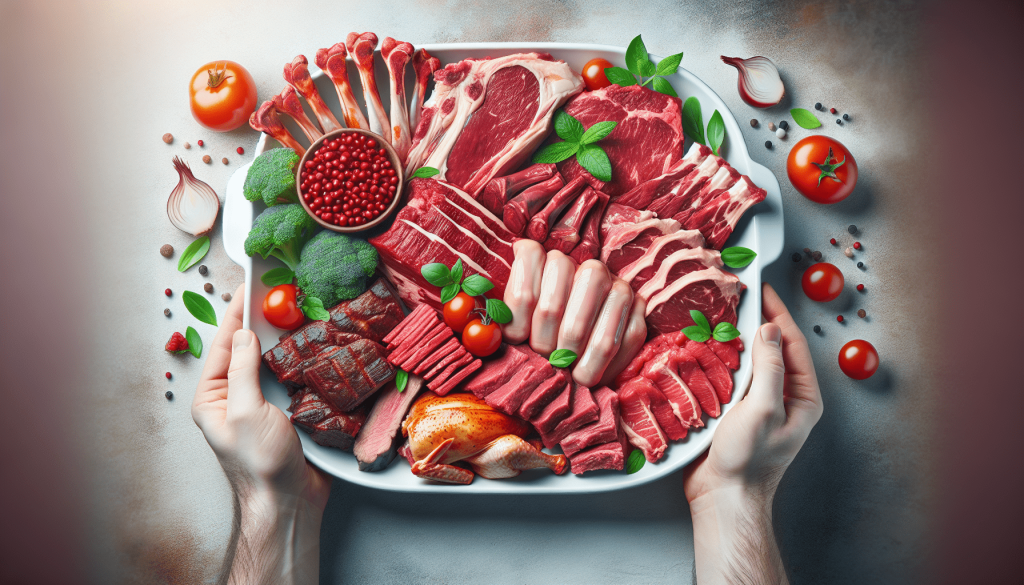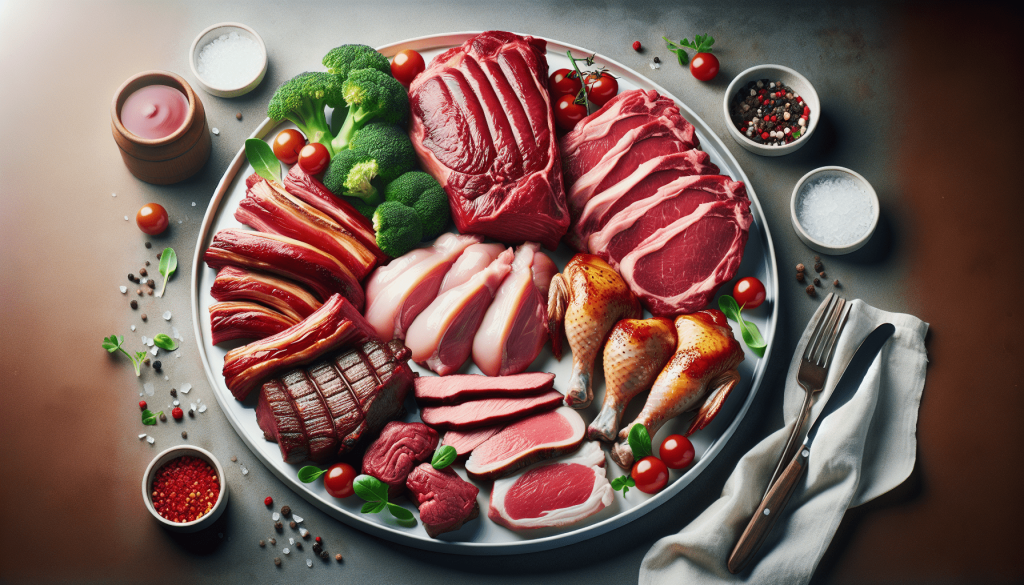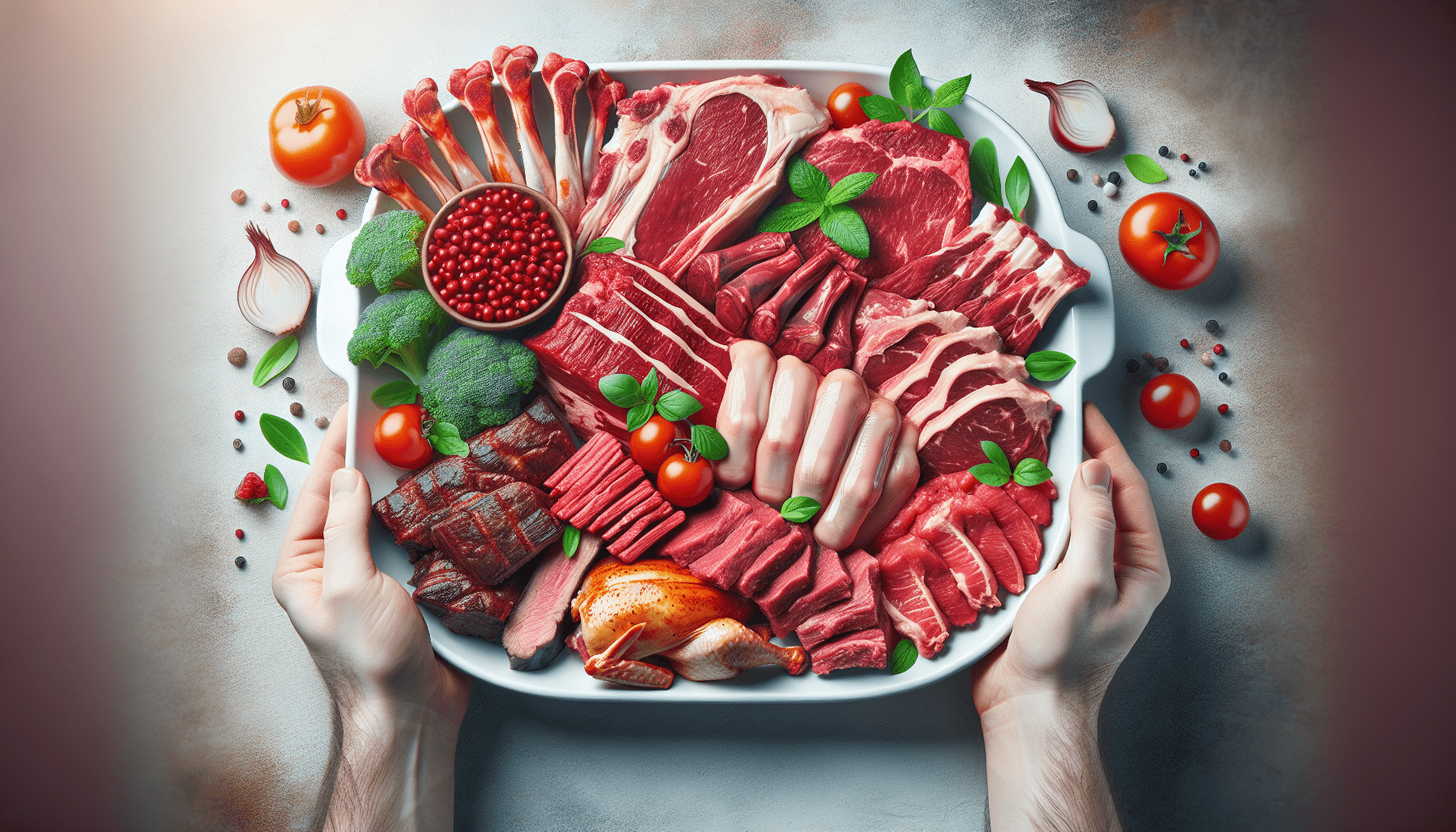So you’ve heard about this new trend called the Carnivore Diet and you’re thinking, what’s the deal? Well, let us be the ones to give you the lowdown on how to get started on this meat-centric journey. Whether you’re a seasoned meat lover or just curious about trying something new, our beginner’s guide will provide you with all the essential information and tips to embark on the Carnivore Diet with confidence and make your carnivorous dreams a reality. From understanding the basic principles to managing potential challenges, we’ve got you covered. It’s time to unleash your inner meat-eater and discover a whole new world of delicious possibilities.
Understanding the Carnivore Diet
The Carnivore Diet is a dietary approach that primarily focuses on consuming animal-based foods while minimizing or completely eliminating plant-based foods from your diet. It promotes the idea that our ancestors thrived on animal foods and that consuming a high-protein, high-fat diet can lead to numerous health benefits. By understanding the principles and history of the Carnivore Diet, as well as its potential benefits, you can make an informed decision about whether it is the right choice for you.
What is the Carnivore Diet?
The Carnivore Diet, also known as the zero-carb diet or “carnivore way of eating,” is a diet that emphasizes the consumption of animal products. This means that your main food sources will come from animal-based proteins, fatty cuts of meat, organ meats, fish, seafood, eggs, dairy products, fats, and oils. By eliminating or drastically reducing carbohydrates, fruits, vegetables, grains, legumes, and processed foods, it is believed that the Carnivore Diet can help optimize health and improve various health conditions.
History of the Carnivore Diet
While the Carnivore Diet has gained popularity in recent years, its roots can be traced back to ancient civilizations. Our ancestors primarily relied on hunting and gathering, consuming animal meats and fats as their main source of sustenance. Over the years, with the advent of agriculture and the availability of plant-based foods, our diets have significantly changed. The resurgence of the Carnivore Diet draws inspiration from this ancestral way of eating and believes that returning to our roots can have significant health benefits.

Benefits of the Carnivore Diet
Advocates of the Carnivore Diet claim that it can lead to numerous benefits such as weight loss, improved digestion, increased energy, mental clarity, reduced inflammation, and better overall health. By focusing on nutrient-dense animal-based foods, the diet provides essential vitamins, minerals, and amino acids necessary for optimal bodily function. Additionally, proponents believe that by eliminating potentially inflammatory plant foods, the Carnivore Diet can help alleviate symptoms associated with autoimmune conditions, digestive disorders, and mental health issues.
Preparing Yourself for the Carnivore Diet
Before embarking on the Carnivore Diet, it is essential to consult with a healthcare professional, such as a registered dietitian or a doctor. They can provide personalized guidance, assess any potential risks based on your medical history, and help you make informed decisions about your dietary choices. Understanding the potential risks, such as nutrient deficiencies, gastrointestinal issues, and electrolyte imbalances, can empower you to address them proactively and mitigate any adverse effects. It is also crucial to set realistic expectations and understand that the Carnivore Diet may not be suitable for everyone.
Food to Eat on the Carnivore Diet
The Carnivore Diet primarily focuses on animal-based foods, ensuring you get an adequate amount of protein, healthy fats, and essential nutrients. Some key food groups to include in your diet are:
Animal-Based Proteins
Meats such as beef, lamb, pork, poultry, and game meats are excellent sources of protein and important nutrients like iron, vitamin B12, and zinc. Aim for high-quality, pasture-raised, and organic options whenever possible.
Fatty Cuts of Meat
In addition to protein, consuming fatty cuts of meat can provide a good source of healthy fats. Options like ribeye steak, bacon, and fatty fish not only add flavor but also contribute to your overall energy intake.
Organ Meats
Organ meats like liver, kidneys, and heart are highly nutritious and rich in vitamins, minerals, and essential amino acids. They offer a wide range of beneficial nutrients that may be lacking in other foods.
Fish and Seafood
Including fish and seafood in your diet can provide omega-3 fatty acids, a type of fat that offers numerous health benefits such as reducing inflammation and supporting cardiovascular health. Opt for fatty fish like salmon, mackerel, and sardines.
Eggs
Eggs are a versatile and nutrient-dense food that can be a valuable addition to the Carnivore Diet. They are an excellent source of high-quality protein, essential vitamins, and minerals.
Dairy Products
If you tolerate dairy well, products like butter, heavy cream, and hard cheeses can be included in your Carnivore Diet. They provide additional sources of fat, vitamins, and minerals.
Fats and Oils
To ensure a sufficient intake of healthy fats, incorporate fats and oils like tallow, lard, olive oil, and avocado oil into your meals. These fatty sources help provide energy, support hormone production, and promote satiety.

Foods to Avoid on the Carnivore Diet
While the Carnivore Diet places heavy emphasis on animal-based foods, it requires strict avoidance or limitation of certain food groups:
Grains and Cereals
Grains such as wheat, rice, oats, and corn, along with products made from them, should be avoided as they are high in carbohydrates and can disrupt the desired state of ketosis.
Fruits and Vegetables
Due to their high carbohydrate content, fruits and vegetables should be minimized or excluded from the Carnivore Diet. This may seem counterintuitive, as fruits and vegetables are generally associated with good health. However, proponents of the Carnivore Diet argue that sufficient nutrients can be obtained from animal-based foods alone.
Legumes and Beans
Legumes and beans, including chickpeas, lentils, and soy products, should also be avoided, as they are high in carbohydrates and can cause digestive issues for some people.
Processed Foods
Processed foods, including refined grains, packaged snacks, and fast food, should be strictly avoided. These foods are typically high in unhealthy fats, added sugars, and artificial ingredients that can negatively impact health.
Added Sugars
All forms of added sugars, including high-fructose corn syrup, cane sugar, and artificial sweeteners, should be eliminated from the Carnivore Diet. These sugars can lead to blood sugar spikes, weight gain, and increased inflammation.
Artificial Sweeteners
Artificial sweeteners like aspartame, sucralose, and saccharin should be avoided, as they may disrupt gut health, impact insulin response, and promote cravings for sweet foods.
Soft Drinks
Carbonated beverages, energy drinks, and sugary soft drinks should be eliminated, as they are high in added sugars or artificial sweeteners and offer little to no nutritional value.
Alcohol
Alcohol should be strictly limited or avoided altogether on the Carnivore Diet, as it is high in carbohydrates, disrupts liver function, and can hinder the body’s ability to enter or maintain a state of ketosis.
Meal Planning and Recipes for the Carnivore Diet
Creating balanced meals on the Carnivore Diet is crucial to ensure you meet your nutritional needs and maintain a healthy dietary pattern. While the diet may seem limited in variety, there are numerous ways to prepare and enjoy your meals. Some tips for meal planning and exploring different cooking methods include:
Creating Balanced Meals
To ensure a well-rounded diet, aim to include a variety of animal-based proteins, fats, and organ meats in your meals. This helps provide the necessary macronutrients and micronutrients your body needs for optimal function.
Exploring Different Cooking Methods
Experiment with various cooking techniques such as grilling, roasting, pan-searing, broiling, and slow cooking to add different flavors and textures to your meals. You can also try using different spices, herbs, and marinades to enhance the taste of your meats.
Sample Meal Plan for Beginners
Here is a sample meal plan to give you an idea of how to structure your meals on the Carnivore Diet:
- Breakfast: Bacon and eggs cooked in tallow or butter.
- Lunch: Grilled chicken thighs with a side of liver pâté.
- Snack: Hard-boiled eggs or beef jerky.
- Dinner: Ribeye steak with butter and a side of salmon.
- Dessert: If desired, a small portion of high-fat dairy such as heavy cream or a slice of cheese.
Addressing Nutrient Deficiencies on the Carnivore Diet
While the Carnivore Diet can provide many essential nutrients, maintaining a balanced intake of micronutrients is crucial. Here are some factors you should consider:
Importance of Micronutrients
To ensure you meet your nutrient needs, consider incorporating organ meats, fish, eggs, and dairy products into your diet. These animal-based foods are rich in vitamins such as vitamin A, B-vitamins, vitamin D, vitamin K2, and minerals like iron, zinc, and selenium.
Supplementation
Depending on your individual needs, your healthcare professional may recommend specific supplements to address any potential nutrient deficiencies. This can include supplements for vitamin D, omega-3 fatty acids, or electrolyte support.
Specific Nutrients to Monitor
When following the Carnivore Diet, it is essential to monitor your intake of calcium, vitamin C, and fiber. While these nutrients are commonly obtained through plant-based sources, it’s important to find alternative ways to ensure you meet your recommended daily intake.
Managing Potential Side Effects
As with any dietary change, you may experience some side effects when starting the Carnivore Diet. It’s important to manage these effectively to maintain your motivation and overall well-being. Consider the following areas:
Transition Period
During the initial phase of the Carnivore Diet, your body may take some time to adapt. It is not uncommon to experience symptoms such as fatigue, headaches, or changes in bowel movements. These side effects are typically temporary and should resolve as your body adjusts.
Digestive Issues
Some individuals may experience digestive issues, such as constipation or diarrhea, when starting the Carnivore Diet. These can be managed by ensuring adequate fluid intake, consuming fatty cuts of meat, and gradually increasing your consumption of organ meats.
Electrolyte Imbalance
As the Carnivore Diet can be diuretic in nature, it’s important to maintain proper hydration and monitor your electrolyte levels. Consider adding a pinch of high-quality salt to your meals, or consuming bone broth, to help combat electrolyte imbalances.
Dealing with Social Situations
Following a unique dietary approach like the Carnivore Diet can present social challenges, particularly when dining out or attending events with friends and family. Be prepared to communicate your dietary choices and consider bringing your own food or suggesting carnivore-friendly restaurants or activities.
Physical and Mental Wellness on the Carnivore Diet
To optimize your overall well-being while on the Carnivore Diet, it’s important to prioritize physical and mental health. Consider the following factors:
Exercise and Fitness
Engaging in regular physical activity is important for maintaining a healthy lifestyle. Incorporate exercises that you enjoy, such as strength training, cardiovascular activities, or yoga, to support overall fitness and well-being.
Stress Management
Stress can have a significant impact on your health and well-being. Practice stress management techniques such as meditation, deep breathing exercises, or engaging in hobbies that bring you joy and relaxation.
Monitoring Mental Health
Pay attention to your mental health when following the Carnivore Diet. If you experience any negative changes in mood or emotional well-being, consider seeking professional support from a therapist or counselor.
Long-Term Sustainability and Modified Versions of the Carnivore Diet
While some individuals may choose to follow the Carnivore Diet long-term, it is essential to assess your goals and find a dietary approach that aligns with your lifestyle and preferences. Consider the following factors:
Assessing Long-Term Goals
Evaluate your long-term health goals and determine if the Carnivore Diet is suitable for you in the long run. It’s important to ensure your dietary choices are sustainable, enjoyable, and support your overall well-being.
Cycling Off the Carnivore Diet
If you decide to transition away from the Carnivore Diet, consider a gradual approach. Slowly reintroduce foods like vegetables, fruits, and whole grains back into your diet while paying attention to how your body responds.
Exploring Carnivore-Adjacent Diets
If the Carnivore Diet feels too restrictive for you, consider exploring carnivore-adjacent diets that incorporate both animal-based foods and plant-based foods. Examples include the paleo diet, ketogenic diet, or a low-carb, high-fat approach.
Tracking Progress and Seeking Support
To ensure you stay on track and address any challenges that arise during your Carnivore Diet journey, it’s important to track your progress and seek support when needed. Consider the following avenues:
Recording Food Intake and Health Changes
Keeping a food diary can help you monitor your dietary choices and identify any possible patterns or triggers. Additionally, tracking changes in your health, energy levels, and overall well-being can provide valuable insights.
Finding Online Communities and Resources
Joining online communities or social media groups focused on the Carnivore Diet can provide a sense of community, support, and valuable information. Engage with like-minded individuals, share insights, and seek guidance when needed.
Considering Professional Guidance
If you feel overwhelmed or unsure about certain aspects of the Carnivore Diet, consider seeking professional guidance from a registered dietitian or nutritionist who specializes in low-carb or ketogenic diets. They can provide personalized advice and answer any questions or concerns you may have.
By equipping yourself with knowledge, support, and realistic expectations, you can confidently embark on your Carnivore Diet journey and determine if it is the best dietary approach for you and your well-being. Remember to prioritize your health, listen to your body, and make adjustments as needed to optimize your overall health and happiness.
